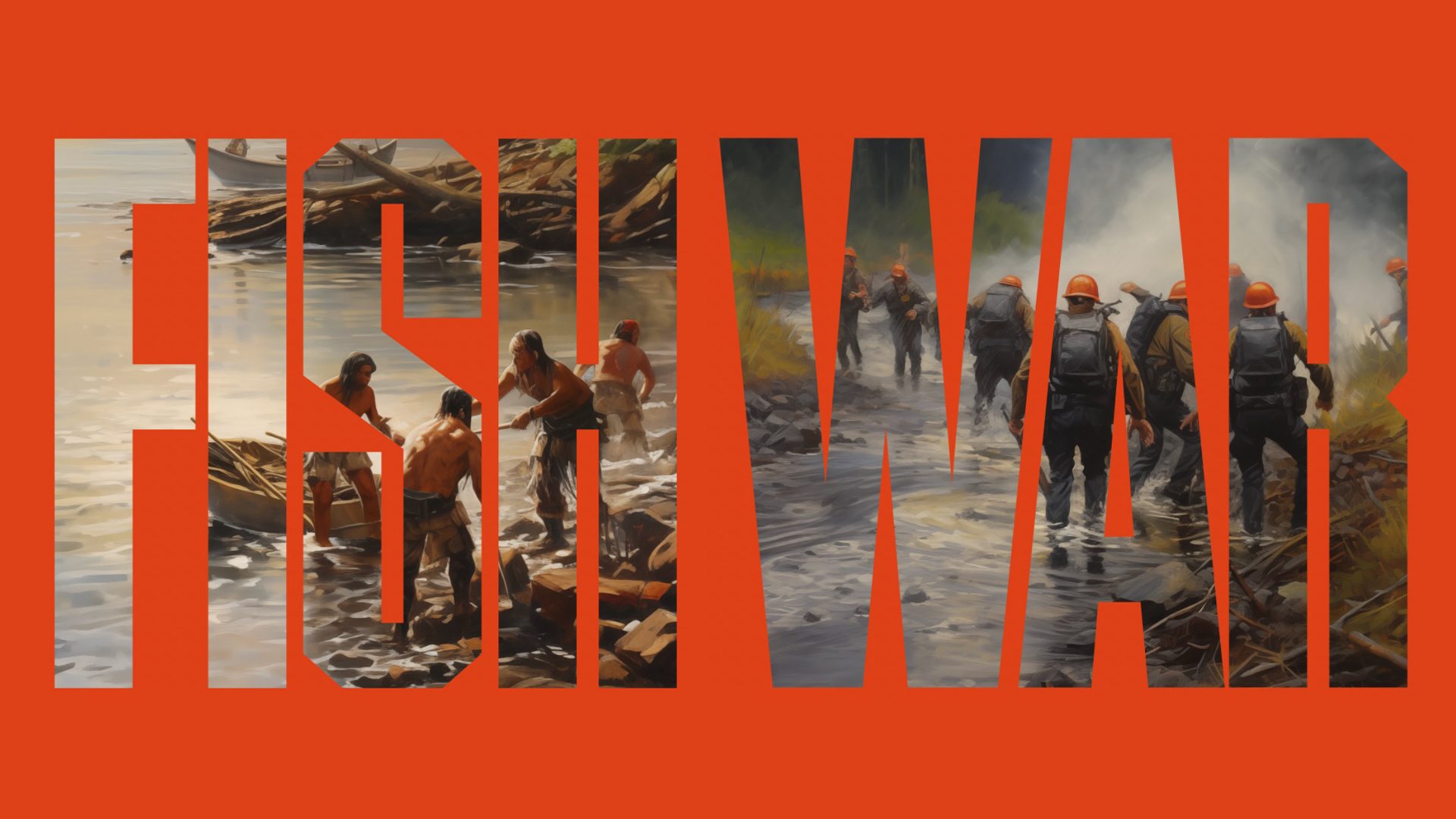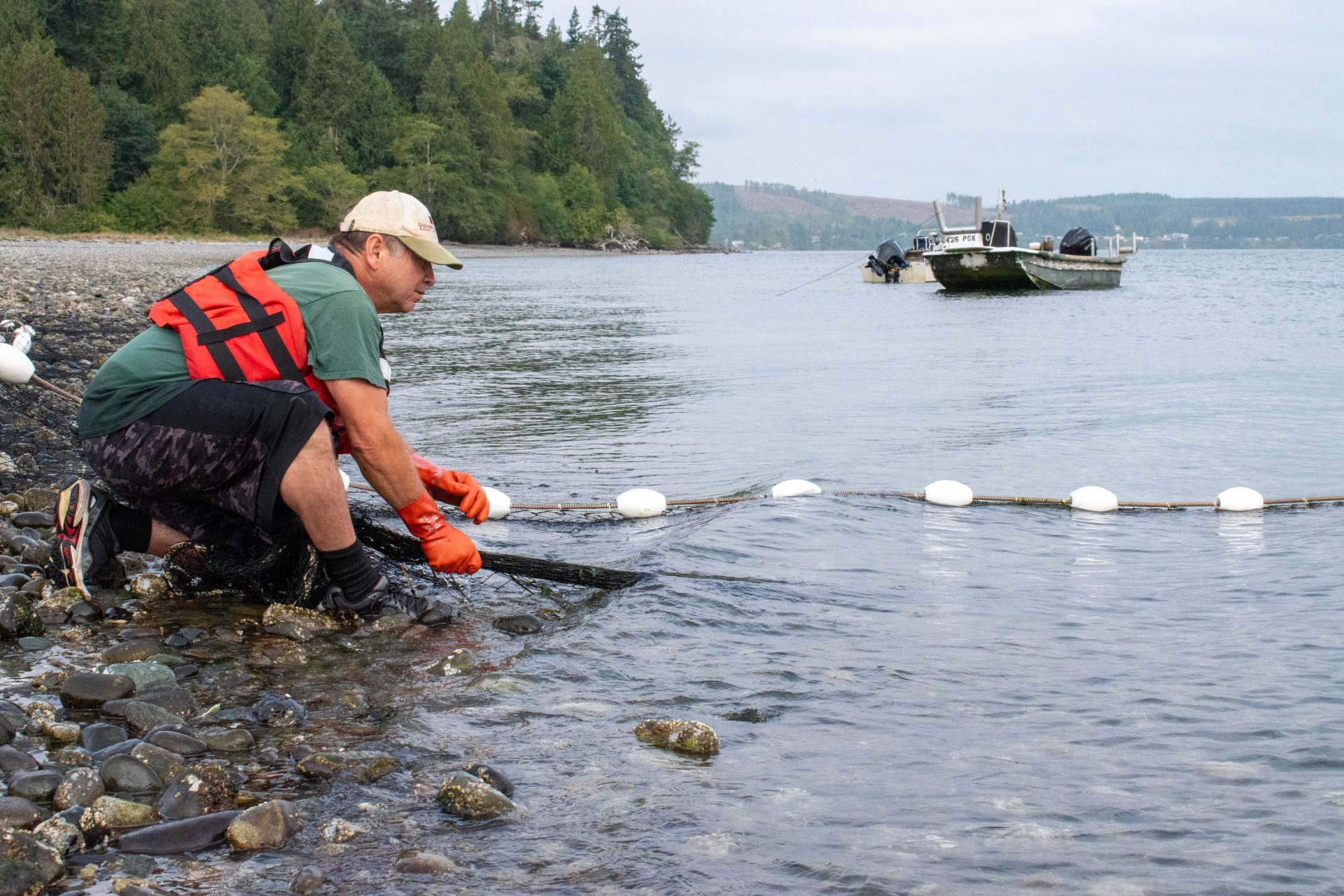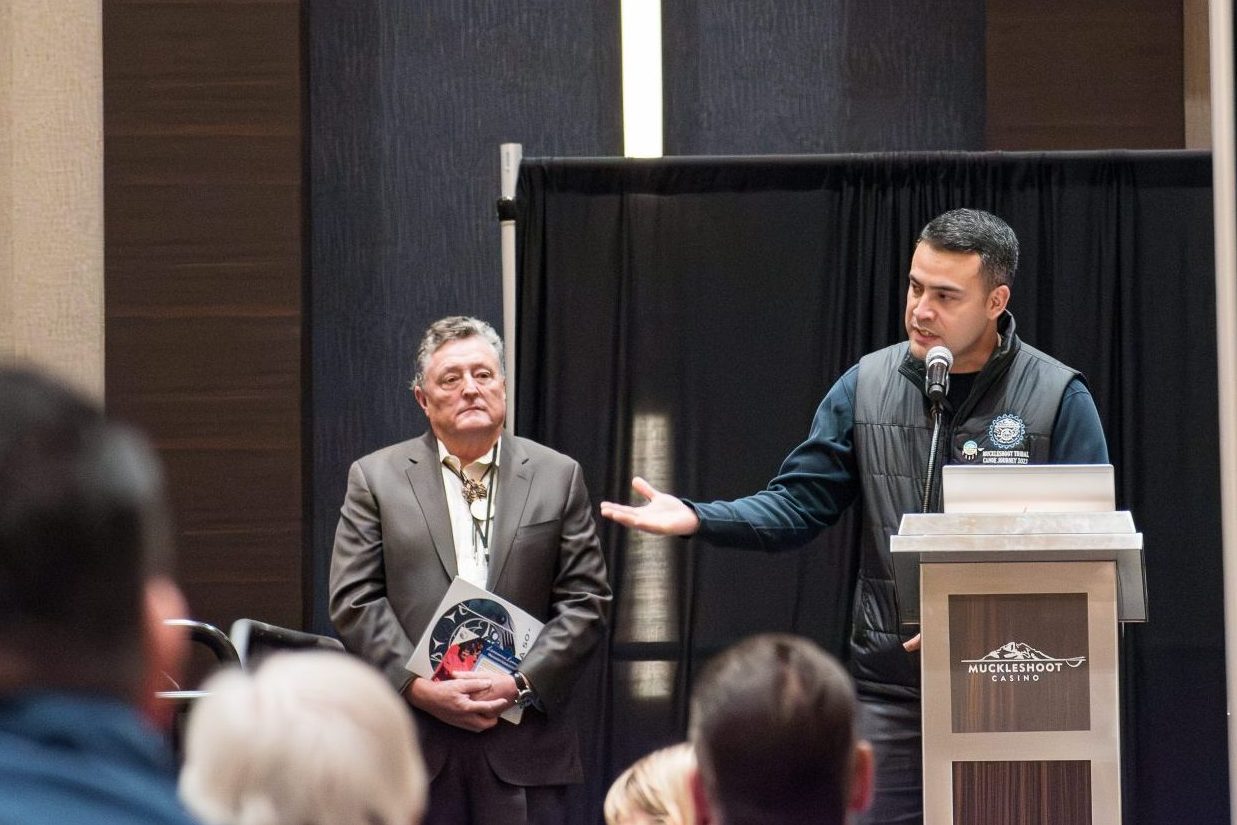Northwest Indian College students on the Tulalip campus are getting field experience monitoring water quality in their own backyard.
A few years ago, the Tulalip Tribes Natural Resources Department constructed a wetland adjacent to the parking lot that serves the college as well as the Boys and Girls Club. Engineered wetlands contain highly organic soil and vegetation to absorb and break down pollutants carried by stormwater, including copper from brake pads and zinc from tires, which are harmful to salmon.
To monitor the effectiveness of the wetland, native environmental studies students are sampling water in two catch basins following a rainstorm. The first catch basin collects water that runs off from the parking lot. After the stormwater has time to filter through the system, the students sample water from a second catch basin where the water drains from the horseshoe-shaped wetland.
“This constructed wetland was a demonstration project,” said Valerie Streeter, stormwater planner for the tribe. “I hoped to get students interested in the wetland, and I was very impressed with how engaged they were.”
Monitoring the wetland is part of a service component of Ben Lubbers’ class on biology and the natural history of the Salish Sea.
“Hands-on learning is important,” Lubbers said. “In class, we learn about water quality and stewardship. What better place to expand on that than right outside the classroom?”
“It’s exciting to partner with the Natural Resources Department for this learning opportunity that could lead to job opportunities,” said Renee Roman Nose, site manager for the college.
The water samples are tested for turbidity and total suspended solids, as well as phosphorus, nitrogen, copper and zinc. Even in trace amounts, copper has shown to be fatal to juvenile salmon by interfering with their alarm pheromones, making them vulnerable to predators. It also impairs salmon’s breathing, brain function and sense of smell, interferes with migration and depresses the immune system.
For more information, contact: Valerie Streeter, stormwater planner, Tulalip Tribes, 360-716-4629 or [email protected]; Kari Neumeyer, information officer, NWIFC, 350-424-8226 or [email protected].




